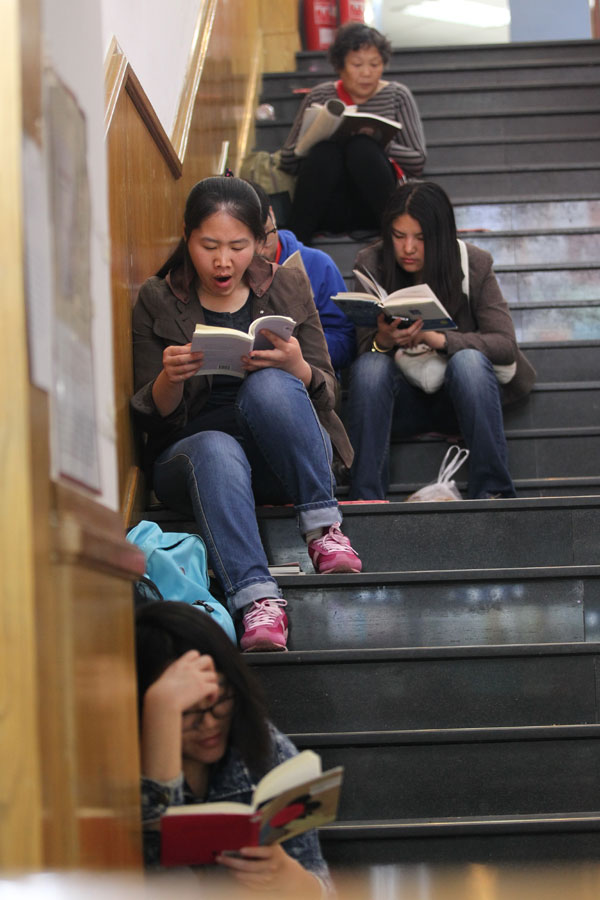 |
| Readers burn midnight oil in Beijing's first 24-hour bookstore, the Sanlian Taofen Bookstore. [Zou Hong/China Daily] |
"The prospect for bookstores depends on how different the shopping experiences they offer are from e-reading and online booksellers and on how good the experiences are to keep customers staying in the spaces," says Liu Suli, founder of All Sages Books.
Founded in 1993, the bookstore is regarded as a mecca for social sciences lovers in China as it has an extensive selection of academic books. Its Thinker's Cafe Bar attracts scholars and top businesspeople from home and abroad.
"A store only selling books won't survive in the market. Bookstores will target a smaller and smaller group of people in the future and dig out every possible interest of theirs to develop closely related commodities and events."
In Liu's vision, small independent bookstores, which were eliminated by super chains at the beginning of the 21st century before the rise of e-books and Amazon, will make a comeback.
And these bookstores will differentiate themselves from others by specializing in one particular area. There will be more unique bookstores like the Books for Cooks in London's Notting Hill area. The cookbook shop has a test kitchen where customers really "cook the books" by testing the recipes.
Neale says small independent bookstores can better address the challenges from the Internet than super chains, pitching it as a David and Goliath battle.
"David is a tiny shepherd while Goliath is a mighty warrior, but David wins because he is agile, runs around the giant and beats him with stones," Neale says.
"Similarly, independent bookstores can target a small group of people and offer detailed, accurate services, while it's difficult for big chains to develop in-depth knowledge about their customers and to tailor-make services for the general public."
Signs of independent bookstores' rejuvenation are evident in the UK market. Although the whole market's annual sales saw a drop of 16 percent in 2013 year-on-year, the sales of independent bookstores climbed from 120 million pounds ($201.5 million) in 2012 to 130 million pounds in 2013, according to Neale.
For bookstore chains to survive, they need to be bold enough to remove best-sellers from the shelves and replace them with selective books which are difficult to find online, says Seiichi Mizuno, former president of the Seibu Department Stores in Tokyo, who initiated the idea of opening a bookshop in the department store in the 1990s.
Neale suggests that the branches each focus on one area, so that they can distinguish themselves from one another.
Tsutaya, a chain of video rental shops and bookstores in Japan with 1,470 branches nationwide, has experimented with a new way of buying books in its branch Daikanyama T-Site that opened in 2011.
Related:
Public figures give thoughts on World Book Day
|
|
|
|
|
|
|
|
